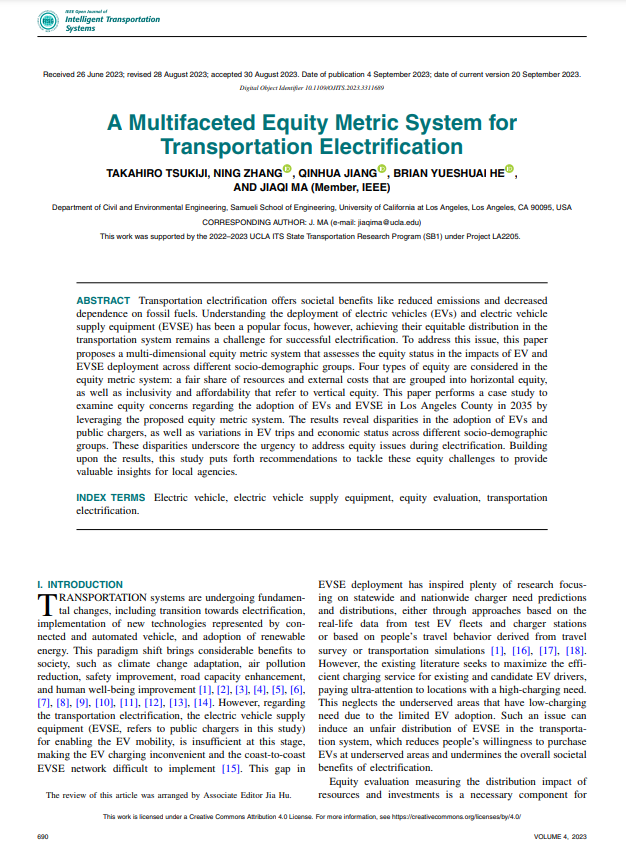Date: September 4, 2023
Author(s): Takahiro Tsukiji, Ning Zhang, Qinhua Jiang, Brian Yueshuai He, Jiaqi Ma
Abstract
Transportation electrification offers societal benefits like reduced emissions and decreased dependence on fossil fuels. Understanding the deployment of electric vehicles (EVs) and electric vehicle supply equipment (EVSE) has been a popular focus, however, achieving their equitable distribution in the transportation system remains a challenge for successful electrification. To address this issue, this paper proposes a multi-dimensional equity metric system that assesses the equity status in the impacts of EV and EVSE deployment across different socio-demographic groups. Four types of equity are considered in the equity metric system: a fair share of resources and external costs that are grouped into horizontal equity, as well as inclusivity and affordability that refer to vertical equity. This paper performs a case study to examine equity concerns regarding the adoption of EVs and EVSE in Los Angeles County in 2035 by leveraging the proposed equity metric system. The results reveal disparities in the adoption of EVs and public chargers, as well as variations in EV trips and economic status across different socio-demographic groups. These disparities underscore the urgency to address equity issues during electrification. Building upon the results, this study puts forth recommendations to tackle these equity challenges to provide valuable insights for local agencies.
About the Project
The project aims to present an in-depth understanding of the public EV charging infrastructure in the present and future transportation electrification for public agencies, such as SCAG. One contribution is to provide an integrated eTranSym tool, which can simulate the travel and charging behaviors of every EV user, assess disparities in charging infrastructure distribution among communities, and predict the future demand for public charging facilities. The eTranSym tool helps prioritize underserved communities and assists the spatial-varying investment of the public charging infrastructure.


